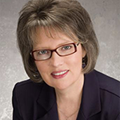3 tips for filling schedule holes from patient cancellations
Editor's note: Dianne Watterson, MBA, RDH, authored many articles for RDH and its sister sites and publications that answered readers' questions and provided insights and recommendations to hundreds of dental professionals.
Question: I am a solo practitioner with about 1,200 active patients. One of my greatest frustrations is when a patient cancels and the time is left open. My business assistant tries to fill openings, but often she is not successful. She gets very nervous and seems panicky as she tries to find someone to call. I think we need a better system of keeping our schedule full. Can you give me any tips to pass along to my scheduling coordinator?
Dianne Watterson: Of all the jobs in the dental office, there is nothing more important than schedule control. It’s also the most difficult and frustrating job. Just ask any business assistant who has worked diligently to engineer a full schedule only to have it fall apart. Let’s look at some good strategies to help with schedule control.
The probability of filling missed appointments—or “disappointments,” as I call them—often depends on how much notice the cancelling patients give. Last-minute cancellations or no-shows are the most difficult to fill (and sometimes it's impossible). If the scheduler has a few hours, there is a greater likelihood of finding another patient.
Build a list
Your scheduler needs a “quick fill” list of people for filling disappointments. This list can be patients who work variable schedules, patients who have missed previous appointments, and people who have given permission to be called. While I don’t like shuffling appointments around routinely, some patients have flexible schedules and would appreciate getting in sooner rather than later. The assistant would ask, “If we can accommodate you sooner, would you like for me to call you?” If the patient answers yes, the assistant should highlight this appointment as flexible, either in the software or by making a hard copy note in a binder. The patient has given his or her permission to be called, and the business assistant has a pool of short-notice patients. I also recommend that when a patient helps you out by filling an opening, it is good internal marketing to give the patient a reward, such as a card for free coffee at the local shop or a free car wash.
You might also be interested in: For increased production, create a short-call list
Schedule defensively
You’ve heard the saying, “Defense is the best offense.” This applies to our schedules, as we want to prevent as many disappointments as possible. Some patients are more reliable than others, and an astute scheduling coordinator will develop an intuition about certain patients. It is inappropriate to leave messages for unreliable patients (those with a history of disappointment). Such patients should have direct communication, even if it means a call after hours.
Also, we should stop “confirming” appointments. Rather, we provide “courtesy reminder calls” to patients who desire such a call. The office mindset should be that when the appointment is made with the patient’s consent, it is confirmed. It is appropriate to ask patients if they would like a courtesy reminder call. If the patient requests a reminder call, find out which number to call, tell the patient when the call will be placed, and ask if it will go to voicemail.
Support your coordinator
Using text messaging and email reminders should be a part of your defensive strategy as well. Your assistant should ask every patient about receiving text messages and building a current database of email addresses.
A scheduling coordinator with panic in her voice is not a good thing! Your patients are sure to sense it and may even feel pressured. Just understand that ultimately, it is not always possible to fill every opening in the schedule.
Editor's note: This content was originally posted in 2019 and is updated regularly.
About the Author

Dianne Glasscoe Watterson, MBA
Speaker, author, and consultant
Dianne Glasscoe Watterson, MBA, is a consultant, speaker, and author. She helps good practices become better through practical on-site consulting. Visit Dianne's website at wattersonspeaks.com. For consulting or speaking inquiries, contact Dianne at [email protected] or call her at (336) 472-3515.
Updated April 29, 2016
